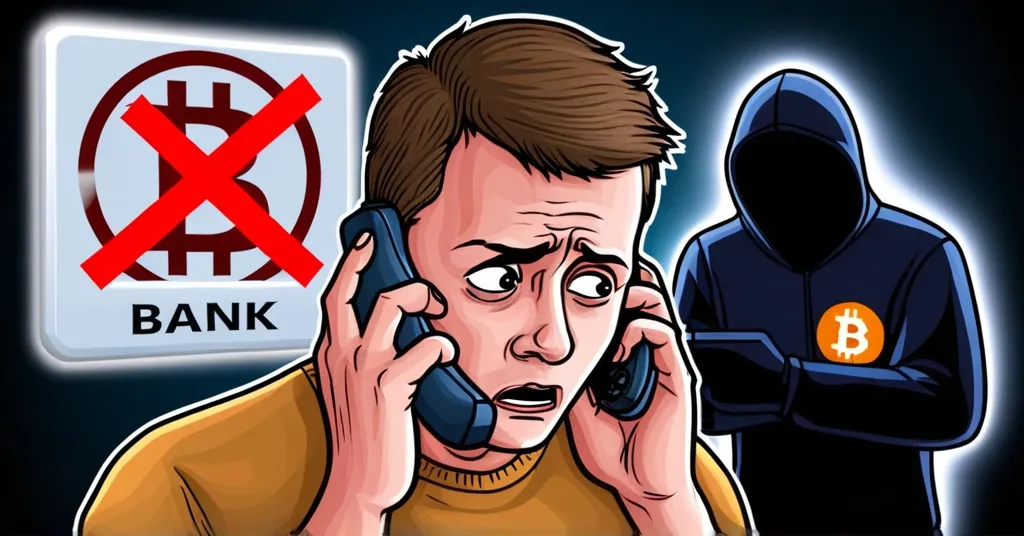Bank of America Refuses Reimbursement After $20,000 Phantom Hacker Scam

Phantom Hacker Drains $20,000 From Bank of America Account: Bank Refuses Reimbursement
- Milan Jackson loses $20,000 to a “phantom hacker” scam.
- Bank of America refuses reimbursement, claiming no responsibility.
- FBI warns of increasing sophistication of such scams.
Milan Jackson, a Chicago-based business owner, was thrust into a financial nightmare when a “phantom hacker” scam drained $20,000 from her Bank of America account. The scam’s sophistication left her reeling, but the bank’s refusal to reimburse her has sparked a heated debate about the responsibilities of financial institutions in the face of such fraud.
The Scam Explained
The “phantom hacker” scam is a devious trick where scammers impersonate bank officials to deceive victims into transferring money. In Jackson’s case, the fraudster used a phone number that perfectly matched the one on her debit card, making the call appear legitimate. These scammers use a technique called “spoofing,” which means faking or disguising the caller ID to look like a real bank number. It’s like the scammers are wearing a digital mask, pretending to be someone they’re not. The FBI has noted the increasing sophistication of these scams, which prey on the trust we place in our banks.
“I get this weird feeling, and so I go into Bank of America, and they confirm that this is a scam. I shut the phone off. I’m hysterically crying… I can’t believe this is my life. How did this happen and how am I going to get this money back?”
Bank of America’s Response
Despite the ordeal, Bank of America has firmly stated that they will not reimburse Jackson for her loss. The bank’s position is clear: they are not responsible for the theft, and they emphasize that they would never call customers to request money transfers. This stance raises significant questions about the extent to which banks should protect their customers from sophisticated fraud.
“They may even be able to spoof that bank’s phone number, so the number on your caller ID or cell phone might show that it’s the bank. Scammers do not discriminate against anyone. They want money from anyone they can take it from.”
Protecting Yourself from Scams
With scams becoming more advanced, it’s crucial to stay vigilant. Here are some steps to protect yourself:
- Be wary of unsolicited calls, especially those asking for money transfers.
- Never provide personal information or transfer money based on such calls.
- Verify the caller’s identity through official bank channels, such as calling the bank directly or visiting a branch.
- If you fall victim to a scam, report it immediately to your bank and the authorities.
Cryptocurrency’s Potential
In the world of cryptocurrencies like Bitcoin, the blockchain technology offers a different approach to security. Unlike traditional banking systems, cryptocurrency transactions are recorded on a public ledger, making them more transparent and potentially less vulnerable to scams like the “phantom hacker.” While Bitcoin isn’t immune to fraud, its decentralized nature means there’s no central authority for scammers to impersonate. However, it’s important to acknowledge that cryptocurrency transactions are irreversible, which can pose its own set of risks.
Counterpoints and Critical Thinking
Bank of America’s refusal to reimburse Jackson raises important questions about their responsibility to protect customers. Some argue that banks should be more accountable, especially given their resources and the trust customers place in them. After all, if banks can’t safeguard their clients from such sophisticated attacks, who can? Yet, the counterargument is that customers must also bear some responsibility for their actions, like transferring large sums without proper verification.
While we champion the decentralized ethos of cryptocurrencies, it’s crucial to consider both sides. Bitcoin and other cryptocurrencies offer a promising alternative, but they aren’t a panacea. The irreversible nature of transactions means that once money is sent, it’s gone for good, highlighting the need for heightened caution in all financial dealings.
Key Questions and Takeaways
What is the “phantom hacker” scam?
The “phantom hacker” scam involves scammers impersonating bank officials to trick victims into transferring money, often using spoofed phone numbers to appear legitimate.
How was Milan Jackson tricked into wiring $20,000?
Jackson received a call from someone claiming to be from Bank of America, warning her of a fraudulent transaction. The caller’s number matched the one on her debit card, and she was instructed to wire money to another account to stop the transaction.
What did Bank of America say about their responsibility in this case?
Bank of America stated they are not responsible for the theft and that they will never call customers to request money transfers.
How are scammers able to make their calls appear legitimate?
Scammers use technology to spoof phone numbers, making it appear as though the call is coming from the bank’s official number.
What can individuals do to protect themselves from similar scams?
Individuals should be cautious of unsolicited calls, never provide personal information or transfer money based on such calls, and verify the identity of the caller through official bank channels.
How can cryptocurrencies like Bitcoin offer more security?
Cryptocurrencies like Bitcoin use blockchain technology, which provides a more secure and transparent way of conducting transactions, potentially reducing the risk of scams like the “phantom hacker.”



